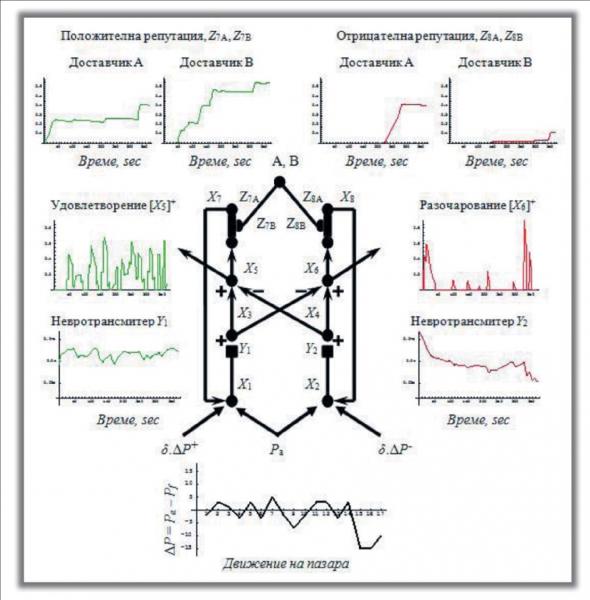Name of Excellence: The Intuitive-emotional Economic Agent
Author: Assoc. Prof. George Mengov, PhD, Department of Statistics and Econometrics
Research domain: Behavioural Economics
|
| George Mengov is an Associate Professor at Sofia University, Faculty of Economics and Business Administration, Department of Statistics and Econometrics, and holds a PhD in Cybernetics from the Technical University – Sofia.
He was a Research Associate at the Bulgarian Academy of Sciences. As an IT consultant with Unisys Corporation he developed information systems for banks in the City of London and in St. Petersburg, Russia.
He authored about fifty publications and delivered invited lectures at European universities. | |
| Assoc. Prof. George Mengov, PhD |
Over the last decades, the need to understand socioeconomic systems has led economics to develop new experimental methods and adopt new computational models, including some from mathematical psychology.
Since 2002, Dr. George Mengov an d a number of Computer scientists and Psychologists from Sofia University have been using these novel techniques to investigate people’s attitudes when they act as economic agents.
In 2006, the team designed a complicated computer-based experiment to study the intuitive-emotional reactions of market participants. The researchers’ objective was to establish the extent to which some fundamental achievements of the founder of mathematical neuroscience Professor Stephen Grossberg and his disciples could be employed to model economic behaviour. That effort was reinforced by the expertise of a German experimental economist, Dr. Henrik Egbert, who joined in at one point. The experiment was conducted in 2007 with 129 students from Sofia University. All the empirical data were fed into a sophisticated computational model that took quite a number of weeks to digest it.
Apart from the precise predictions for most participants, the major achievement of the effort was the following: It established beyond doubt the great potential of the new research ideas. High-profile publications followed, including one in the field’s flagship journal, “Neural Networks”, with 5-year impact factor of 2.501.
Since then, a sequence of ever more realistic experiments followed. Eventually, this research programme began to connect with established disciplines such as Microeconomics, Macroeconomics and Human Resources management, offering them fresh insights about the nature of human motivation.
That work was supported by Sofia University (SU231/2009) and by the Operational Programme “Human Resource Development” (BG051PO001-3.3.06-0012).
A computer model rooted in mathematical neuroscience can explain and predict the economic agent’s satisfaction, disappointment, and attitudes towards suppliers of a good in an experiment

